I have a question about global assignment. Here is a small example. I would like to ask why the second global assignment do not affect inside the function?And why the return output of function is different from what I call for outside the function after I run the function)
Thanks!

